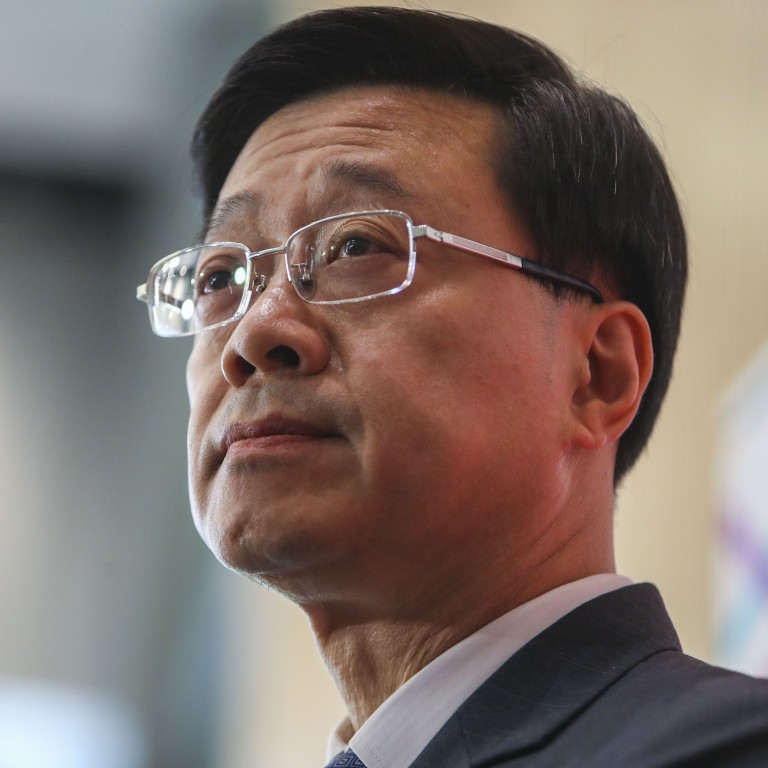
Hong Kong counterterrorism officers on Xinjiang trip saw no human rights violations, security chief John Lee tells lawmakers
- Secretary for security urges legislators not to look at issue with any bias as it was worth knowing how region eliminated terrorism threats
Lee also urged lawmakers not to look at the matter with “coloured glasses” – or bias – as it was worth knowing how the region eliminated terrorism threats.
The Post reported last month that deputy security minister Sonny Au Chi-kwong led seven officers from the Interdepartmental Counterterrorism Unit on a visit to the province between December 6 and 10 to study its counterterrorism measures and facilities.
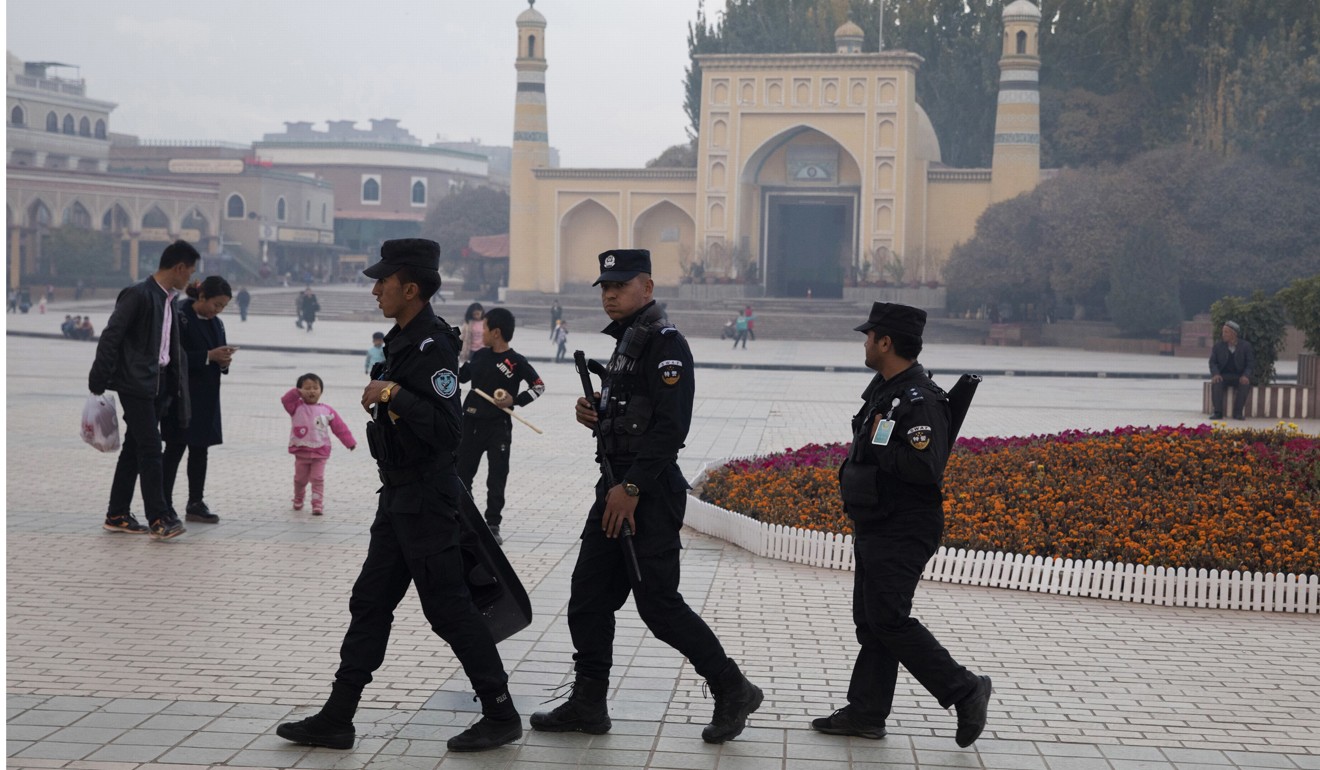
The trip took place against a backdrop of international calls to investigate mass internment centres for Muslim minorities in the region.
When asked if the delegation had spotted measures that violated human rights and that Hong Kong should not learn from, Lee said: “Simple answer – no. Everything we saw was humane. On such a question I have found [people are wearing] coloured glasses.”
Heavily armed anti-terror squad to cover Hong Kong’s railways from Sunday
The secretary for security, responding to a question from Alvin Yeung Ngok-kiu of the Civic Party, added that visiting re-education camps was not part of the itinerary.
The Post also reported that Lee planned to lead unit chiefs to Beijing and southwestern Yunnan province this month on a similar mission. But he cancelled the plan after the Xinjiang trip was exposed and sparked uproar, a government source said.
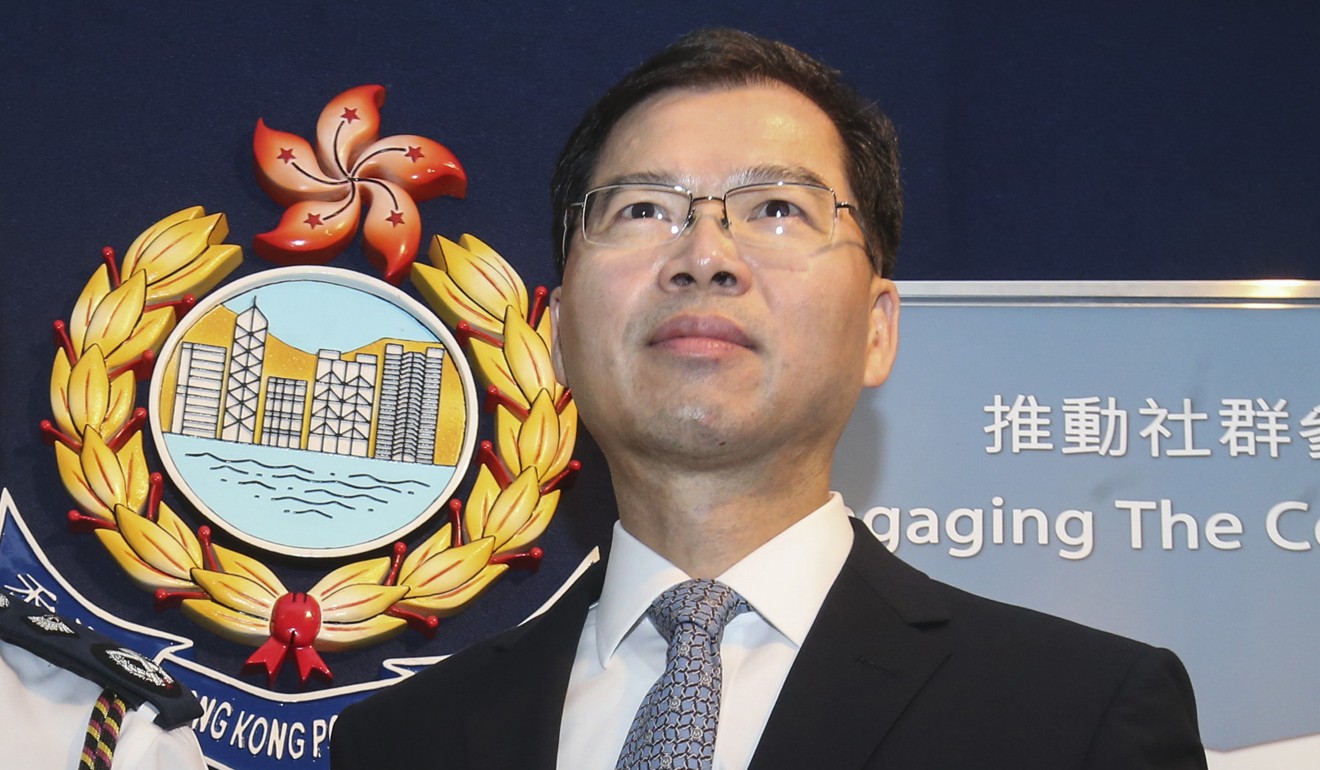
China implemented restrictive policies in Xinjiang as part of a “strike hard” campaign to combat terrorism after riots by the Uygur ethnic minority in the autonomous region’s capital Urumqi in 2009.
A Uygur woman, Mihrigul Tursun, recently told the US Congress she was tortured multiple times while detained in one of the centres, where a number of detainees died.
Germany, along with the United States and France, called on China to close the camps during a UN review of the country’s human rights record in Geneva in November, as campaigners said up to a million Uygurs and other Muslims had been detained.
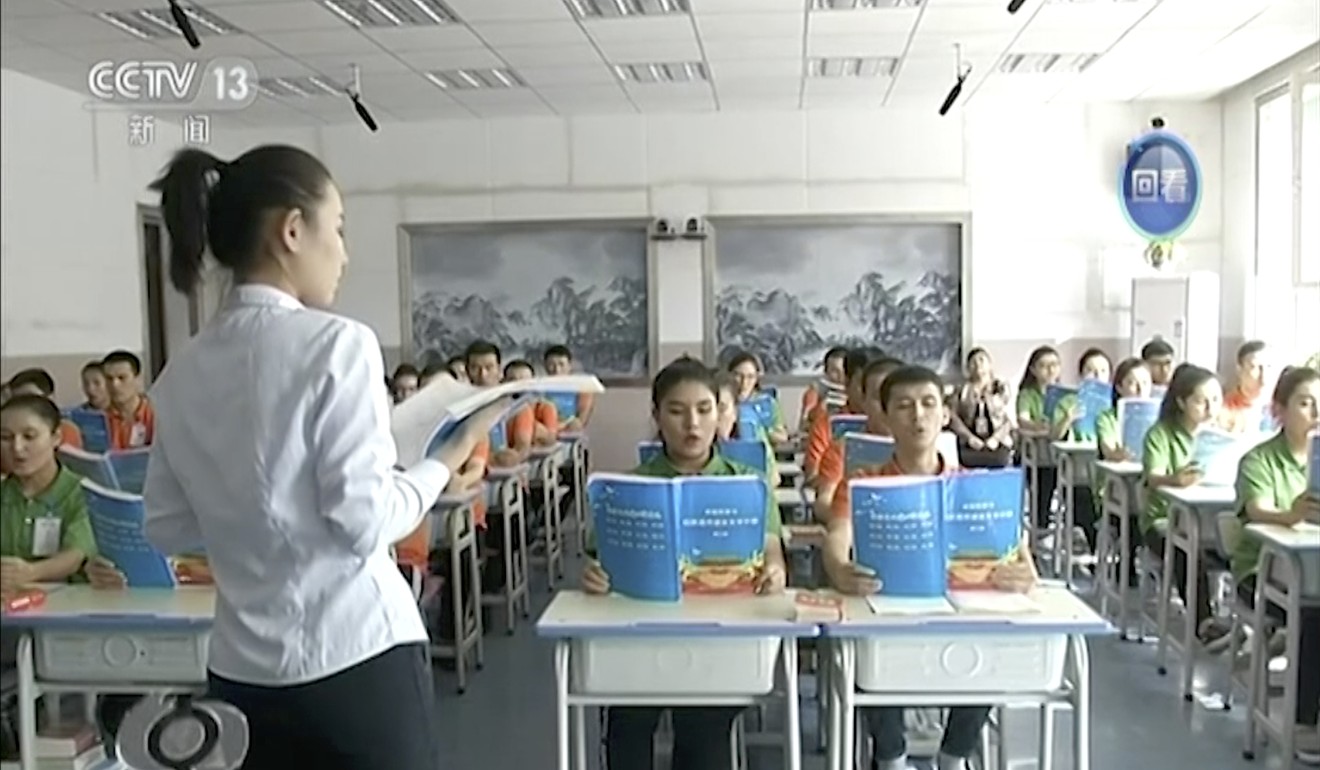
“We chose Xinjiang because it faced massive deadly terror attacks over past years which caused great casualties. But there have been almost no real attacks in the past two years. It is worth studying,” Lee said, adding the delegation had visited many facilities, including the counterterrorism unit, border security checkpoints and police training school.
UN officials can visit Xinjiang as long they ‘don’t interfere’
He also said Security Bureau officials had travelled to countries such as Australia, Germany and Indonesia to exchange views on how to combat terrorism and to study related strategies and that the authority held no bias against any place.
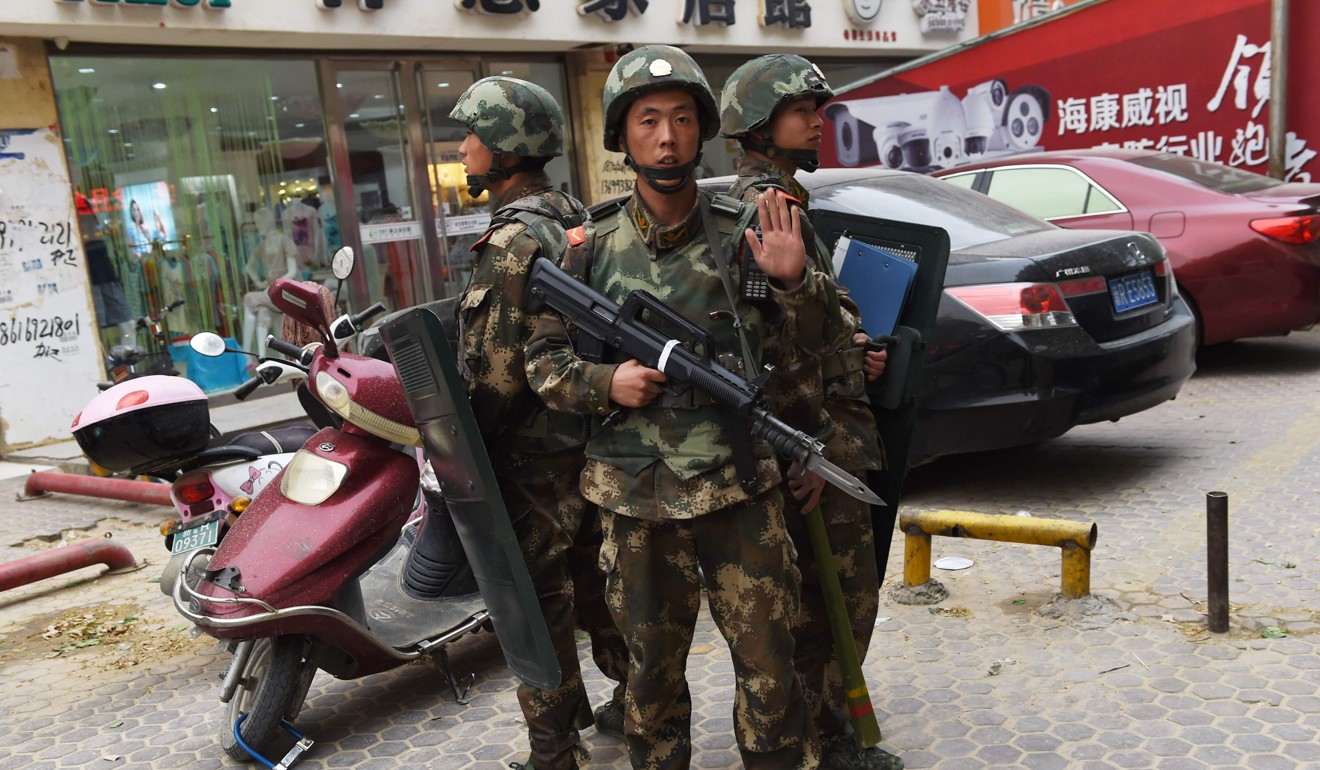
In the 2018-19 financial year, the government gave the bureau a one-off HK$265 million (US$34 million) cash injection to boost the city’s counterterrorism capabilities and preparedness. Part of the money was used to set up the Railway Response Team, as well as an interdepartmental unit for counterterrorism.

